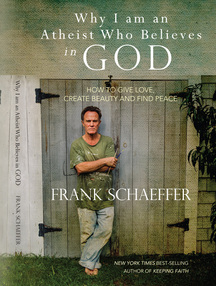Someday I’ll show the movie Seabiscuit to my grandchildren Jack (4) and Lucy (6). On November 1, 1938, President Roosevelt and 40 million other people listening to the radio were captivated by a match race at the Pimlico Race Course between Seabiscuit, the underdog, and War Admiral. Seabiscuit was a small, insignificant horse, “the horse from the other side of the tracks who became a champion,” wrote one commentator. In the movie, a reporter reacting to the coast-to-coast publicity for the race expresses doubt at Seabiscuit’s chances: “That’s an awful lotta hoopla for such a little horse.”
To which Seabiscuit’s jockey, Red Pollard, responds, “Though he be but little, he is fierce.”
“What’s that?” asks the reporter.
“That’s Shakespeare, boys, Shakespeare,” says Red.
Red’s response nicely captures the folly of assessing meaning by anything other than poetry. And poetry is only spirit rather than material, love in action, love of life, love of words, love of beauty, even love of beautifully expressed ugliness. Poetry is play, more like a child’s game than “serious.” Therefore it is the most serious form of expression of all for the same reason that, until they grow up, children are transparent. Red knew calculations of scale and meaning and size and strength must include matters of the spirit. So did Laura Hillenbrand, the unlikely author of the fabulous book upon which the movie is based.
Hillenbrand (a hero of mine) was forced to leave college before graduation when she contracted chronic fatigue syndrome, with which she has struggled ever since. She can barely leave her house. She suffers when she writes and it takes an enormous act of the will for her to do the most ordinary things. Yet, Hillenbrand wrote a classic that, at least temporarily, liberates me from mortality. Hillenbrand is an example of what Jesus was talking about: the truth of being is not found in the outer trappings, but in the spirit. Hillenbrand, Jesus, Seabiscuit—all unlikely cornerstones rejected by society, all reaching to the heart of the matter, all suffering and also triumphing—all changing my perception.
On the irony of writing about physical limits while being so incapacitated herself, Hillenbrand, says, “I’m looking for a way out of here. I can’t have it physically, so I’m going to have it intellectually. It was a beautiful thing to ride Seabiscuit in my imagination” (Washington Post, November 28, 2010). Put another way, what is truer than a story about a journey into one person’s Eternal Present powered by a single bite of tomato on a summer afternoon? In that moment, I vividly re-experienced being eight years old and sitting on a terrace overlooking the Mediterranean Sea while eating lunch with my parents. Saying that my ability to encode and retrieve personal experiences, called episodic memory, is supported by the circuitry of my medial temporal lobe, is just another way to say that sometimes the taste of a fresh tomato brings tears to my eyes. It reminds me of the times my beautiful young mother handed me a ripe slice and said “Taste this darling!” She’s gone but her love abides. And that love can be triggered and made alive by the sacrament of gardening and storytelling or even getting an emailed picture from an opera singer who was a stranger—until she wasn’t.
Saying that plants have a “level of intelligence that rivals ours” may be true, but do they pine for lost childhoods? Do they tell stories about experiencing life as a beautiful narrative? Do tears fall as they take a first bite of a plant they grew with their grandchild because they know how much their mother would have loved the moment? Does the color contrast of the fruit to the vine make them want to paint a picture? When it’s 4 a.m., and they are sick of writing, do they find inspiration in a writer who got the job done through a veil of tears and say to themselves, “Laura Hillenbrand did it, so just quit whining and write!”
I tell my grandchildren about what it was like to throw open the shutters on the first morning of our summer vacation while knowing that the entire holiday lay ahead of me. I tell Amanda and Ben and Lucy and Jack how I ran out of the pensione to be the first person on the beach each year. I tell them about watching the sun rising over a turquoise sea and how deliciously cold the wet sand felt under my feet. I tell them about how the taste of a fresh-picked tomato reconnects me to that time and place and to my darling mother. And as I hand Lucy a tomato just plucked from a vine she helped plant, her eyes sparkle as brightly as that far off sea. My grandchild will remember this moment. And that is no small thing…. You’ve just read an excerpt from my book. WHY I AM AN ATHEIST WHO BELIEVES IN GOD: How to give love, create beauty and find peace.
Frank Schaeffer is a writer. His latest book —WHY I AM AN ATHEIST WHO BELIEVES IN GOD: How to give love, create beauty and find peace













